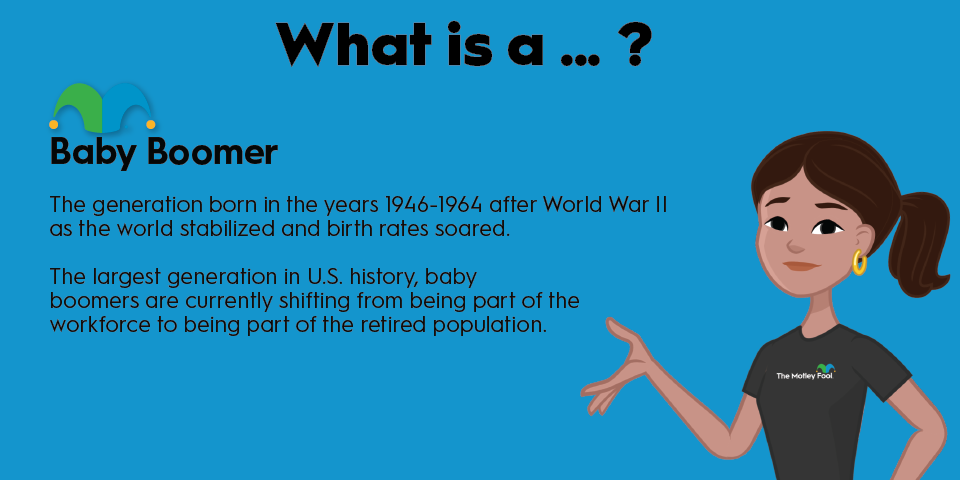
Baby Boomers: A Generation of Change and Impact
Introduction
The Baby Boomer generation, born between 1946 and 1964, is one of the most significant and influential cohorts in American history. Their sheer size, cultural impact, and economic contributions have left an enduring mark on society. This article delves into the characteristics, experiences, and legacy of the Baby Boomer generation, exploring their profound impact on various aspects of American life.
Demographic Characteristics
The Baby Boomers are the largest generation in American history, with an estimated 76 million members. This surge in births was primarily attributed to the post-World War II economic boom and the desire for larger families. The generation’s size and concentration in the early postwar years had a ripple effect on society, shaping everything from education to housing.
Cultural Impact
The Baby Boomers came of age during a period of significant social and cultural change. They witnessed the Civil Rights Movement, the Vietnam War, and the rise of the counterculture. Their experiences and values shaped their worldview, leading to a more liberal and progressive outlook compared to previous generations.
The Baby Boomers were also instrumental in the development of popular culture. They embraced rock and roll, television, and film, creating a vibrant and influential entertainment landscape. Their music, fashion, and attitudes became synonymous with the 1960s and 1970s.
Economic Contributions
The Baby Boomers entered the workforce in the 1970s and 1980s, coinciding with a period of economic growth and technological advancements. Their large numbers and education levels contributed to the rise of the knowledge economy and the expansion of industries such as technology, finance, and healthcare.
The Baby Boomers also benefited from the rising value of real estate and the stock market, accumulating significant wealth. However, their economic success has also been accompanied by challenges, including rising income inequality and the increasing cost of living.
Political Influence
The Baby Boomers have been a politically active generation, participating in social movements and shaping public policy. Their liberal values have influenced the Democratic Party, while their concerns about economic security have resonated with both Democrats and Republicans.
The Baby Boomers have also been instrumental in the rise of independent and third-party candidates, reflecting their desire for political alternatives. Their political engagement has had a significant impact on issues such as healthcare, education, and environmental protection.
Aging and Retirement
As the Baby Boomers reach retirement age, they are facing a unique set of challenges and opportunities. Their large numbers are putting a strain on social security and Medicare, while their desire for active and fulfilling retirement years is creating new demands for healthcare, housing, and leisure activities.
The aging of the Baby Boomers is also having a significant impact on the workforce. As they retire, they are leaving behind a skills gap that needs to be filled by younger generations. This transition is creating opportunities for younger workers but also poses challenges for businesses and the economy.
Legacy and Impact
The Baby Boomer generation has left an indelible mark on American society. Their size, cultural influence, and economic contributions have shaped the nation in countless ways. Their experiences and values have influenced everything from politics to popular culture.
As the Baby Boomers enter their retirement years, their legacy will continue to be debated and discussed. Their impact on society has been both positive and negative, but there is no doubt that they have been a transformative force in American history.
Specific Examples of Baby Boomer Impact
Education: The Baby Boomers’ large numbers led to a surge in school enrollment, which in turn led to the expansion of higher education. They also played a role in the development of new educational approaches, such as open classrooms and individualized learning.
Housing: The Baby Boomers’ demand for housing led to the construction of new suburbs and the expansion of existing cities. They also contributed to the rise of homeownership and the development of new housing styles, such as ranch homes and split-level homes.
Technology: The Baby Boomers were the first generation to grow up with computers and the internet. Their embrace of technology has led to the development of new industries and the transformation of existing ones. They have also been instrumental in the rise of social media and the sharing economy.
Healthcare: The Baby Boomers’ aging population is putting a strain on the healthcare system. However, they are also driving demand for new healthcare technologies and services. Their desire for healthy and active aging is creating opportunities for businesses and healthcare providers.
Politics: The Baby Boomers have been a politically active generation, participating in social movements and shaping public policy. Their liberal values have influenced the Democratic Party, while their concerns about economic security have resonated with both Democrats and Republicans.
Conclusion
The Baby Boomer generation has been a force of change and impact in American society. Their size, cultural influence, and economic contributions have shaped the nation in countless ways. As they enter their retirement years, their legacy will continue to be debated and discussed. However, there is no doubt that they have been a transformative force in American history.
